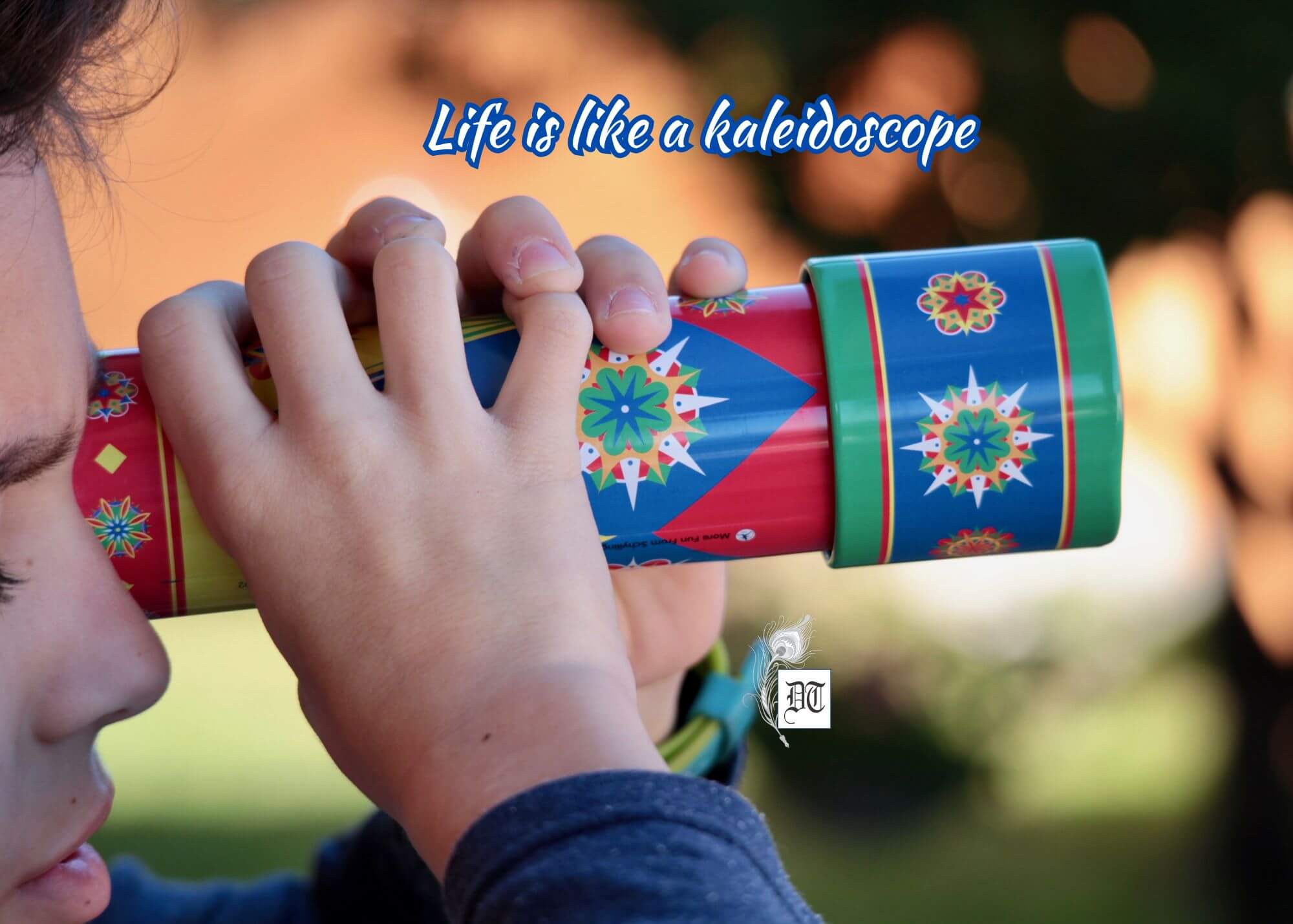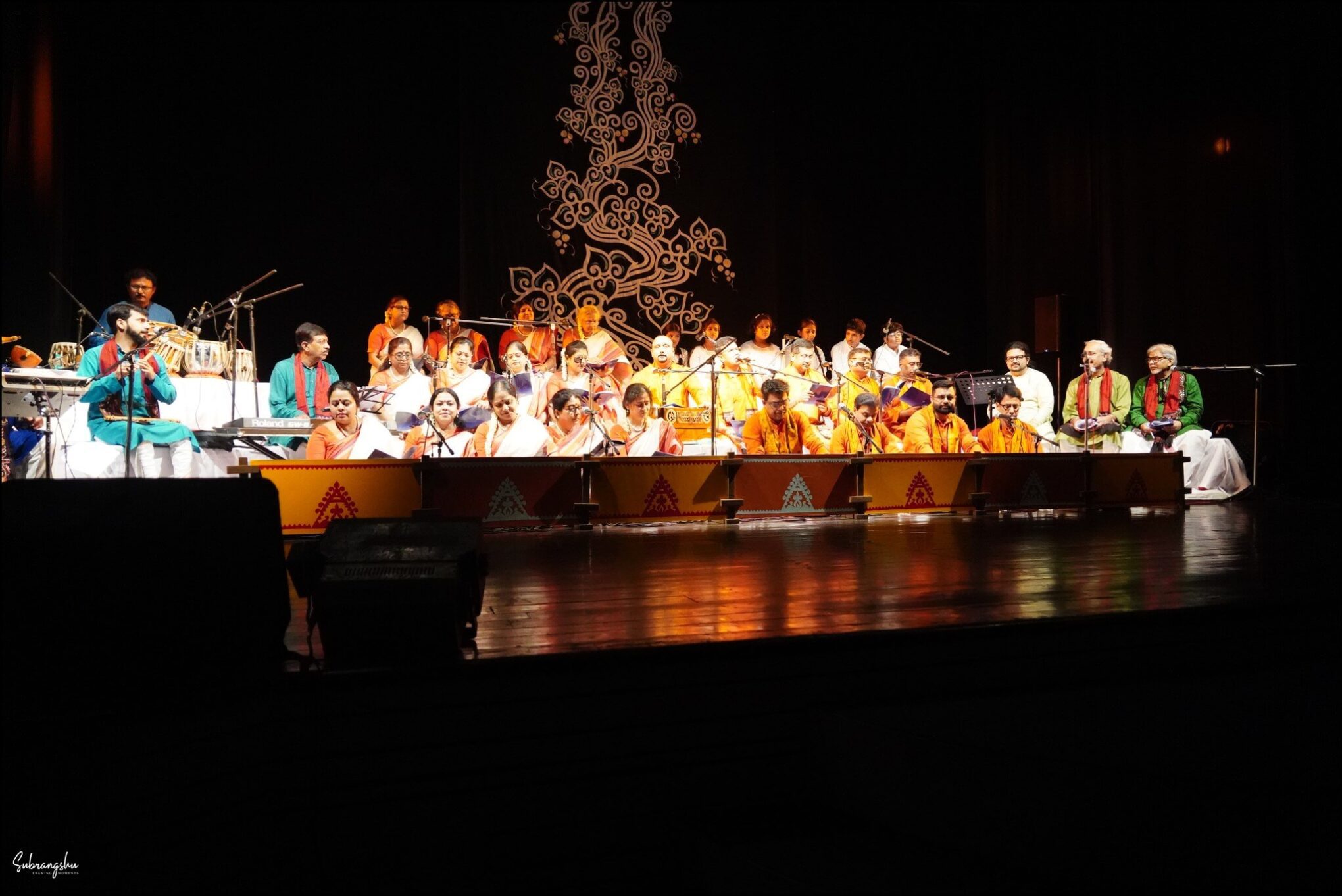In the second and final part of the adventure, Soumya tells us of an escape by the skin of the teeth. Read more in the weekly column, exclusively in Different Truths.
We left our hero, i.e. me, in a dilemma, at the close of part one. This was resolved, quite literally, by a cliffhanger. I hung over the cliff outside the cave, clutching at vines for dear life, praying the tiger isn’t about to pounce and got rid of the excess Rajasthani hospitality that my delicate Bong system was loathed to accept.
Early next morning, woken not by birdcalls but by screeching of langurs, we climbed down to the stream for a morning frolic, unaware of the import of the langurs’ agitation. Soon the frantically gesticulating Sadhu called us back to the cave. There, he gently chided us for destroying the harmony of the forest.  fApparently, the stream was part of the beat of a tigress, and the langurs were announcing the presence of her majesty. Unknown to us, but evident to the Sadhu, she had made a kill last night, and had enjoyed the meal at her favourite spot a short stroll away, and had been coming down to the pool for a refreshing drink, when our rude transgressions disturbed her majesty. The Queen of the forest had left in a huff and withdrawn into deeper forest.
fApparently, the stream was part of the beat of a tigress, and the langurs were announcing the presence of her majesty. Unknown to us, but evident to the Sadhu, she had made a kill last night, and had enjoyed the meal at her favourite spot a short stroll away, and had been coming down to the pool for a refreshing drink, when our rude transgressions disturbed her majesty. The Queen of the forest had left in a huff and withdrawn into deeper forest.
After a breakfast of Roti and Aloo courtesy our forest hermit, and tea courtesy Jo and his billycan, and enjoying our morning chillum and Satsang, our host showed us the way to the lake via the stream, with a warning not to disturb the kill. Slightly skeptical, giving credit to the hallucinatory qualities of good jungle weed, we rounded the bend and stood still in shock! There, on a flat rock just below the overhang were the gory remains of a Sambar. We did not disturb the kill. It was the kill that deeply disturbed us. The pugmarks leaving the stream were clearly visible in the sand. They seemed very fresh. The thought that this kill could have been us, anytime that we were walking around this area, relieving myself late last night, or taking a dip this morning, when we were within sniffing distance of this mayhem made our hair stand on end. We hurried down the path, cursing Desi for having got us into this.
A further shock awaited us, but a beautiful one this time. In the tall grass, we came face to face with a majestic Sambar Stag. We both froze for seconds when suddenly someone breathed, and the magic was broken. The stag disappeared with a mighty leap.
We reached the ruins by the lake and found shelter, where we carefully lit a fire as the tourist lodge was on the opposite bank and we had to stay hidden. We dined on the villagers’ gur and chana and Jo’s porridge and settled down, taking turns to mind the fire and stand guard. Jo had been carrying a Lonely  Planet, but blown away by this experience which no guidebook had warned him of, he decided to donate the pages for rolling Jo. After an incident-free night, we rose at dawn with the light shimmering on the lake and water birds everywhere. Herds of chital were at the lake, oblivious of us. As the sun rose, we saw some crocodile sunning themselves on the bank. This led to a problem as our water was being rationed for drinking only and we needed more for washing and for tea. We drew straws and I lost. With the billycan, a jerry can and a stick I went down quaking, stomping to make the crocks leave, as advised. They slithered off into the water. But the water near the edges was murky and covered in green scum, making it opaque. I was certain the prehistoric beasts are lurking just under, waiting to drag me down. Ignoring my friends’ encouragements to go in and get clean water, I stood safely on the bank, as far from the water as possible. I hooked the billycan and jar on the stick and collected muddy water full of flotsam and vegetation. Jo patiently strained it through a cloth, boiled it and made tea, tricks he had learned in the Great Australian Outback, and we had tea and porridge and left to explore the lake.
Planet, but blown away by this experience which no guidebook had warned him of, he decided to donate the pages for rolling Jo. After an incident-free night, we rose at dawn with the light shimmering on the lake and water birds everywhere. Herds of chital were at the lake, oblivious of us. As the sun rose, we saw some crocodile sunning themselves on the bank. This led to a problem as our water was being rationed for drinking only and we needed more for washing and for tea. We drew straws and I lost. With the billycan, a jerry can and a stick I went down quaking, stomping to make the crocks leave, as advised. They slithered off into the water. But the water near the edges was murky and covered in green scum, making it opaque. I was certain the prehistoric beasts are lurking just under, waiting to drag me down. Ignoring my friends’ encouragements to go in and get clean water, I stood safely on the bank, as far from the water as possible. I hooked the billycan and jar on the stick and collected muddy water full of flotsam and vegetation. Jo patiently strained it through a cloth, boiled it and made tea, tricks he had learned in the Great Australian Outback, and we had tea and porridge and left to explore the lake.
Finally, our luck ran out. Some tourists mistook us for tigers and disappointed on finding some kids instead, alerting the guards, and that’s where the story began in Part 1.
Hearing the commotion and realising that we are exposed, we stopped hiding in the grass, where we had crouched on the jeeps approach and made a run for the fence, which was quite close here. We went to the tree our village friends had pointed out, whose branches straddled the fence and throwing our rucksacks over, climbed the tree and jumped the fence. The guards were still some hundred yards away.
Our great escape was being watched by a college bus trip waiting on the road outside. We whetted their curiosity, and Jo hurriedly collected his cycle from the villagers, whom we profusely thanked in broken Hindi. Then the students gave us a lift to Sawai Madhopur, providing a meal and transportation in exchange for our stories, much like the troubadours of old.
We decided to dispense with buying tickets again, much to Jo’s delight and decided to spend our remaining funds on a local brew called Santara. This was too potent for poor Desi, a teetotaler till then, but after the strain on the nerves he decided to sample some, and promptly passed out.
The first Delhi bound train that arrived was jam-packed, and we just managed to get a foothold in a  doorway pleading an ill companion and showing Desi. So space was made, the poor in our country being compassionate people, and Desi was stuffed between people’s feet, while we sat on the steps of the open doorway. Jo used his skin colour to store his cycle in a first class compartment and came to join us. We spent the night perched on the moving train’s steps, and occasionally pulling the comatose Desi out so that he could be sick on the tracks. We reached Delhi alive and returned to our Hostel and Jo to his backpackers’ dorm.
doorway pleading an ill companion and showing Desi. So space was made, the poor in our country being compassionate people, and Desi was stuffed between people’s feet, while we sat on the steps of the open doorway. Jo used his skin colour to store his cycle in a first class compartment and came to join us. We spent the night perched on the moving train’s steps, and occasionally pulling the comatose Desi out so that he could be sick on the tracks. We reached Delhi alive and returned to our Hostel and Jo to his backpackers’ dorm.
I returned to find an appointment letter waiting, and have been serving that sentence since. Desi went on to top the Civils and is a glamorous diplomat now. Ron lived our dreams, travelled the world, running canteens, gambling dens, being a tea taster, despite drinking only alcohol, and is now settled in Europe. Jo, after a short stay in Delhi, cycled off into the sunset, never to be heard from since. We did not see the tiger on that trip, but much later. But for all of us, this was one incredible, wild, illegal, dangerous trip that we never should have undertaken, but are glad we did, because this experience can never be repeated or forgotten.
This trip obviously had no photographic evidence other than those seared in our minds.
(Concluded)
©Soumya Mukherjee
Photos from the Internet
#Experience #Dangerous #Photography #Alcohol #Europe #SawaiMadhopur #Delhi #Desi #Tourist #Hindi #WhyPigsHaveWings #DifferentTruths



 By
By


 By
By
enough to last a lifetime